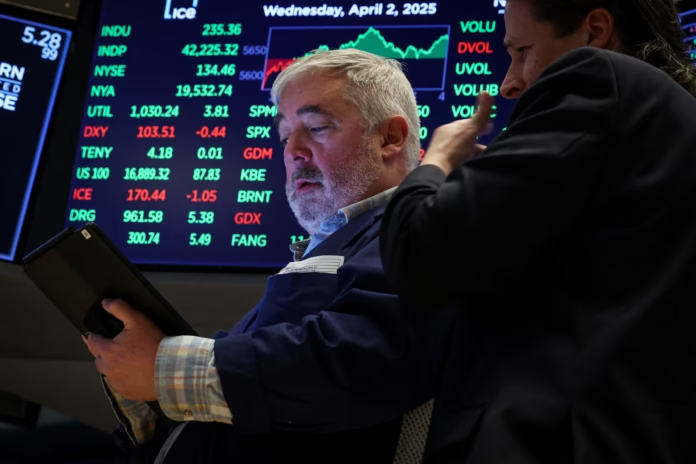Recession fears are rising in the United States as stock markets dropped sharply following new economic developments. Investors reacted quickly after President Donald Trump announced sweeping new tariffs, triggering uncertainty across financial sectors. Shortly after the announcement, major indexes posted losses. The selloff intensified due to a disappointing jobs report. Together, these signals are raising alarms about the strength of the U.S. economy.
Wall Street analysts noted that the latest data shows signs of slowing growth. While job creation continues, wage growth and full-time employment lag behind expectations. These factors contribute to growing recession fears among investors. Meanwhile, the tariffs targeted a wide range of imports, including electronics, vehicles, and raw materials. Businesses now face higher costs, which may reduce hiring and investment. This fuels even deeper recession fears across industries.
Market strategists warn that economic uncertainty could linger for months. Companies will likely delay major decisions until trade tensions ease. In the meantime, financial markets may remain volatile. Recession fears were also amplified by the bond market. Investors moved funds into long-term government bonds, driving yields to new lows. This often signals a lack of confidence in short-term economic stability.
Moreover, consumer confidence is beginning to weaken. Shoppers are spending more cautiously, and retail sales have slowed. This could impact companies dependent on domestic demand, further deepening recession fears. The Federal Reserve now faces pressure to adjust interest rates. Analysts expect more aggressive rate cuts if economic indicators continue to deteriorate. Still, some officials remain cautious, preferring to wait for more data.
In addition, business leaders are voicing concerns. Many CEOs report slower order volumes, higher input costs, and shrinking profit margins. This environment makes long-term planning more difficult for companies of all sizes. Small businesses are especially vulnerable. Higher tariffs squeeze their budgets, while slowing demand reduces revenue. These firms may delay hiring or reduce hours, adding pressure to the labor market.
Although the U.S. economy remains fundamentally strong, warning signs continue to grow. Policymakers must balance short-term market reactions with long-term economic strategy. For now, investors will watch employment reports, manufacturing data, and inflation numbers closely. Each release could shape expectations and influence confidence levels.
Recession fears remain a major topic in financial circles. As long as trade disputes continue, uncertainty will cloud the outlook. The coming months may prove critical for U.S. economic stability.
For more business updates, visit DC Brief.


